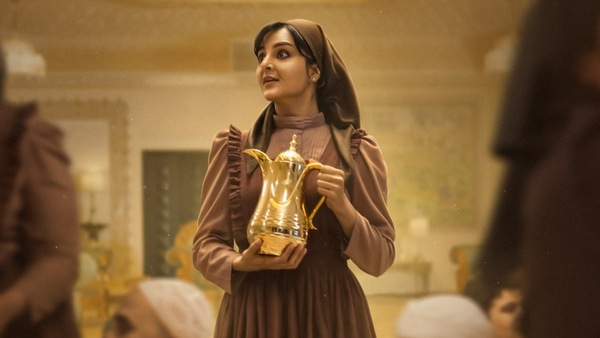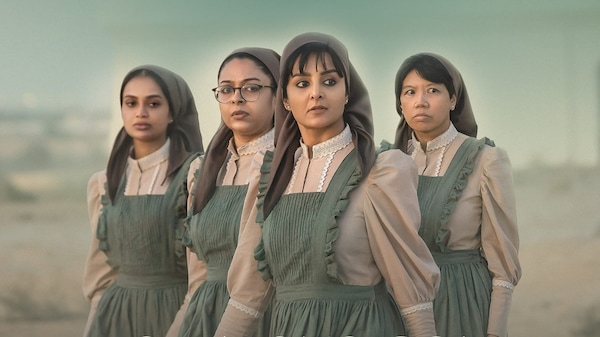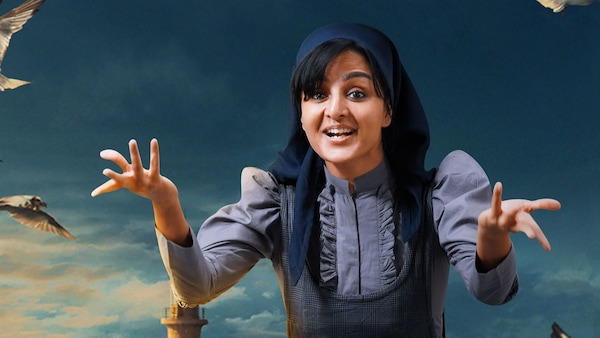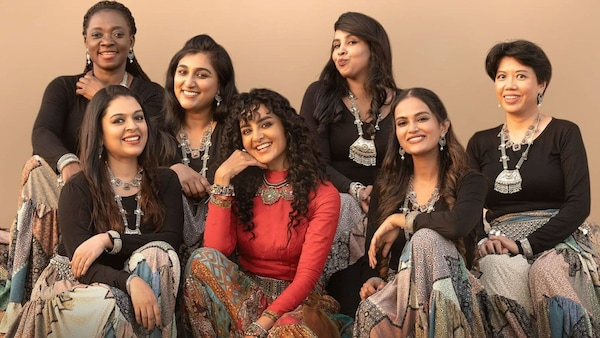Manju Warrier: Ayisha portrays Indo-Arab relationship in a positive light, which is often the reality | Exclusive
Superstar Manju Warrier talks about her latest movie Ayisha, an Indo-Arab entertainer

Last Updated: 10.24 AM, Jan 19, 2023
Within a span of 10 days, the audience will get to see Malayalam superstar Manju Warrier showcasing two polar opposite roles – with her action turn in Ajith Kumar’s Thunivu and as a domestic help in debutant Aamir Pallikal’s Ayisha, which will release in theatres on January 20. Even considering the powerhouse of a performer she is, both roles have enough to surprise the audience. Ayisha, however, also will push boundaries (or blur them) as it’s an Indo-Arab movie with a host of foreign actors, speaking their own language.
In an exclusive interview with OTTplay, Manju Warrier opens up about the elements that attracted her to the movie that was extensively shot in Ras Al Khaimah, UAE, working with the actors and more.
Ayisha is not a straight Malayalam film. It’s a movie set in the Middle East and has a majority of cast from other countries. Also, for such a movie to be made in Malayalam, the film’s director Aamir Pallikal had told us that it needed a star like you in the lead. But what attracted you the most to take up the movie?
I can’t pinpoint one particular aspect that hooked me to Ayisha. When it comes to choosing a film, I always go back to this simple logic – if this movie would appeal to me when I watch it in theatres. I don’t know how to analyse the script in detail and predict whether it would work or not. I go by my gut feeling.

In the case of Ayisha, all these factors that you mentioned had influenced me to an extent, but I also felt that it was going to be a different experience for me as well as the audience. So, it just comes down to a feeling that it would be an enjoyable experience. We shot Ayisha abroad; that was a first for me.
We worked with actors from many countries. It was an organic development, as part of the story. It’s not something that we did to highlight it later. The story is happening in Saudi Arabia and it has a lot of non-Indian presence. Obviously, my character in the film was also good. Also, I was impressed by the perspective of Ayisha’s director Aamir, writer Ashif Kakkodi and producer Zakariya about the movie and my character, when they first shared them with it. So, I felt that it would be a good film based on how they were approaching it.

Usually, Malayalam films that have focused on the struggles of domestic help, have had a serious undertone to it. Ayisha, however, looks very lively and vibrant. As an actress, was that also an attractive prospect?
That might have also been one of the factors that hooked me. That is the kind of fresh approach the makers had, which was different from the films we have seen before. The Indo-Arab relationship in this movie is shown in a very positive light, which is a reality in most cases. There was a delight in being able to show that through our film. That’s also why the team has taken the effort to dub the entire film in Arabic and release it for the Arabic audience on the same day.

There are actors from Egypt, Tunisia, Nigeria, Philippines and other countries in this film. A lot of information exchange would have happened in terms of how their film industries function. What were your learnings from collaborating with these artistes?
There definitely was. We couldn’t share a lot of personal experiences because we didn’t have that much time. But generally, they would ask about Malayalam cinema – how our industry functions and the system here. As far as we are concerned, Arab culture isn’t all that alien to us. Malayalis are familiar with the UAE and the culture there. So, everyone had that common ground.
But while shooting, we were working with actors who speak their own language in the film. So, in one scene, you might have several languages; even in emotional situations. While we were performing, we had to memorise the final word of our co-star’s dialogue for us to get a cue for our lines. So, it was funny while we were doing it, but it should appear hilarious on camera because it was an emotional scene.
At the end of the day, because everyone were fine actors and we had a good team to supervise including the director, we managed to pull it off. It was a fresh experience to act like that. When we are doing Hindi or Tamil, we are familiar with it but because we didn’t know much about the other languages, it was different.
So, how does it convey to the audience?
It’s not like the characters speak entirely in their own language. When a group of strangers from different countries come together at a place, how do they communicate with each other? It will be a mix of broken Malayalam, English, Hindi or any language. Of course, there will be subtitles, but language wouldn’t be a barrier while watching the film because the scenes and conversations are simplified to communicate to the audience.

 Premium
Premium